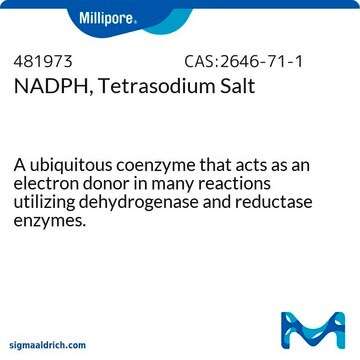G6503
Glycine ethyl ester hydrochloride
99%, for peptide synthesis
Synonym(s):
GEE, Ethyl glycinate hydrochloride
About This Item
Recommended Products
product name
Glycine ethyl ester hydrochloride, 99%
Assay
99%
form
powder or chunks
reaction suitability
reaction type: solution phase peptide synthesis
technique(s)
drug transporter assay: suitable
color
white
mp
145-146 °C (lit.)
application(s)
peptide synthesis
SMILES string
Cl.CCOC(=O)CN
InChI
1S/C4H9NO2.ClH/c1-2-7-4(6)3-5;/h2-3,5H2,1H3;1H
InChI key
TXTWXQXDMWILOF-UHFFFAOYSA-N
Looking for similar products? Visit Product Comparison Guide
Related Categories
Application
Signal Word
Danger
Hazard Statements
Precautionary Statements
Hazard Classifications
Eye Dam. 1
Storage Class Code
11 - Combustible Solids
WGK
WGK 3
Flash Point(F)
Not applicable
Flash Point(C)
Not applicable
Personal Protective Equipment
Certificates of Analysis (COA)
Search for Certificates of Analysis (COA) by entering the products Lot/Batch Number. Lot and Batch Numbers can be found on a product’s label following the words ‘Lot’ or ‘Batch’.
Already Own This Product?
Find documentation for the products that you have recently purchased in the Document Library.
Customers Also Viewed
Our team of scientists has experience in all areas of research including Life Science, Material Science, Chemical Synthesis, Chromatography, Analytical and many others.
Contact Technical Service








